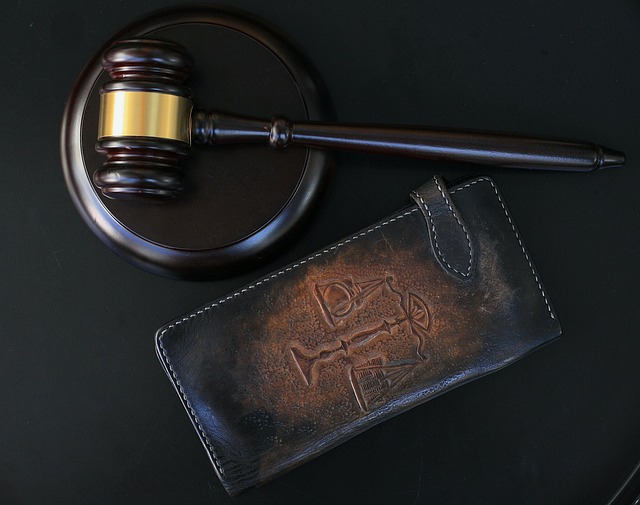Fraudulent financial practices, from accounting fraud to investment scams, erode public trust and require stringent legal oversight. Due Process in Criminal Law Cases is crucial for administering justice in white-collar crime, involving meticulous investigation of intricate financial data, evidence collection, and strategic defenses by specialized lawyers. Preventive measures like robust internal controls, audits, training, and ethical guidelines significantly reduce risks and deter wrongdoers. Ensuring due process not only maintains a fair legal system but also holds perpetrators accountable for severe economic and societal consequences of fraud.
Fraudulent financial practices pose a significant threat to individuals, businesses, and economies worldwide. This comprehensive guide delves into the intricate world of financial fraud, exploring its various forms and the mechanisms behind them. We examine ‘Understanding Fraudulent Financial Practices’ by defining common schemes and their impact. Furthermore, we dissect ‘Due Process in Criminal Law Cases’, highlighting investigation and proof strategies. The article also emphasizes preventive measures and consequences, offering insights into addressing the far-reaching effects of fraudulent activities.
- Understanding Fraudulent Financial Practices: Definition and Common Schemes
- Due Process in Criminal Law Cases: Investigating and Proving Financial Fraud
- Preventive Measures and Consequences: Addressing the Impact of Fraudulent Practices
Understanding Fraudulent Financial Practices: Definition and Common Schemes

Fraudulent financial practices refer to a wide range of illicit activities aimed at gaining an unfair advantage or misappropriating funds. These practices, often characterized by deception and manipulation, can take various forms, from accounting fraud to investment scams. Understanding these schemes is crucial in both civilian and criminal justice contexts, particularly within high-stakes cases involving white collar and economic crimes.
Common fraudulent financial schemes include Ponzi schemes, where investors are promised high returns with little or no risk, insider trading that utilizes non-public information for personal gain, and falsifying financial statements to mislead stakeholders. In the realm of philanthropy and politics, these practices can cause significant harm, leading to a loss of trust in institutions and communities. Ensuring due process in criminal law cases related to fraudulent financial practices is essential, as it guarantees a fair trial while deterring future instances of such crimes.
Due Process in Criminal Law Cases: Investigating and Proving Financial Fraud

In criminal law cases involving financial fraud, due process plays a pivotal role in ensuring that justice is served. The investigation and subsequent prosecution of white-collar and economic crimes demand meticulous attention to detail. Authorities must gather substantial evidence, often spanning various business transactions, to construct a compelling case. This involves a thorough examination of records, financial statements, and digital trails, which can be a complex task due to the intricate nature of these offenses. The challenge lies in translating seemingly mundane financial data into incriminating evidence that meets the burden of proof required for a successful prosecution.
The process requires a balanced approach, guaranteeing the rights of the accused while meticulously pursuing justice. Lawyers specializing in these cases often present winning challenging defense verdicts by questioning the methodology and integrity of the evidence. They scrutinize the respective business practices, financial records’ accuracy, and the intent behind transactions, employing strategic arguments to mitigate their clients’ liability or even secure acquittal.
Preventive Measures and Consequences: Addressing the Impact of Fraudulent Practices

Preventive measures are paramount in combating fraudulent financial practices. Organizations must implement robust internal controls, regular audits, and comprehensive employee training to deter potential wrongdoers. Additionally, establishing clear ethical guidelines and promoting a culture of integrity from the top down can significantly reduce risks. Transparency and accountability mechanisms, such as independent oversight committees, also play a crucial role in identifying and addressing fraudulent activities early on.
The consequences of fraudulent practices are severe, impacting not only respective businesses but also the broader economic landscape. Criminal charges, including jail time and hefty fines, are common outcomes for offenders. Moreover, civil lawsuits brought by aggrieved parties can result in substantial monetary damages. The impact extends beyond financial losses; it erodes public trust in institutions and disrupts market stability across the country. Ensuring due process in criminal law cases related to financial fraud is essential to maintain a fair and just system while holding perpetrators accountable for their actions.
In addressing fraudulent financial practices, understanding common schemes and implementing robust preventive measures are paramount. The article has explored these aspects through discussions on definition, investigation techniques, and consequences. Notably, due process in criminal law cases plays a critical role in uncovering and prosecuting financial fraud. By integrating rigorous legal procedures, societies can mitigate the impact of fraudulent activities, fostering trust in financial systems and safeguarding individuals from economic harm.






